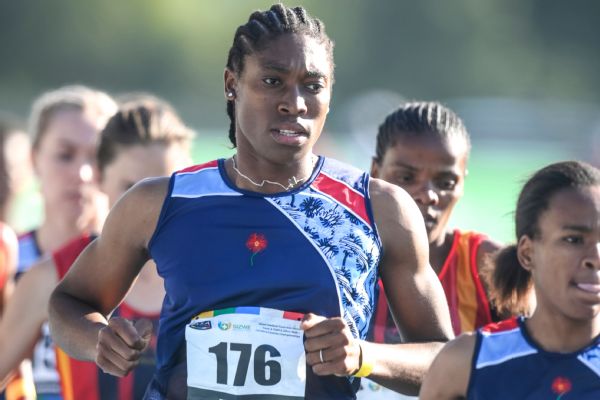
Double Olympic champ runner Caster Semenya won an appeal versus track and field’s testosterone guidelines Tuesday when the European Court of Human being Rights ruled she was victimized and there were “major concerns” about the guidelines’ credibility.
World Sports, which implements the policies, stated in response to the choice that its guidelines would stay in location, indicating there would not be an instant go back to high-level competitors for the South African runner.
Semenya’s case at the rights court protested the federal government of Switzerland, and not World Sports itself, although the choice was still a significant minute in tossing doubt on the future of the guidelines.
Semenya was lawfully recognized as female at birth and has actually recognized as female her whole life, however policies presented by track and field’s governing body in 2019 required her to synthetically reduce her natural testosterone to be enabled to contend in ladies’s competitors.
World Sports states she has among a variety of conditions called distinctions in sex advancement, which leads to a natural testosterone level in the common male variety and which provides her an unreasonable benefit in ladies’s competitors.
Semenya has actually been challenging the testosterone guidelines in the courts for several years, however had formerly lost an appeal at sport’s greatest court in 2019 and a 2nd difficulty versus the guidelines at Switzerland’s supreme court in 2020. That 2nd rejection of her appeal was the reason the Swiss federal government was the participant in the European Court of Human being Rights case.
The Strasbourg-based rights court ruled in Semenya’s favor by a 4-3 bulk of judges on the grievance of discrimination and noted she was rejected an “reliable solution” versus that discrimination through the 2 previous cases she lost at the Court of Arbitration for Sport and the Swiss supreme court.
Tuesday’s judgment remained in lots of methods a criticism of the 2019 choice by CAS. The sports court kept in location the guidelines that need Semenya and others with so-called distinctions in sex advancement conditions, or DSDs, to take contraceptive pill, or have hormone-blocking injections, or go through surgical treatment to be enabled to perform at leading competitors such as the Olympics and world champions.
The guidelines were at first implemented in specific occasions however were broadened and made more stringent by World Sports this year. Professional athletes such as Semenya were required to decrease their testosterone even more if they wished to run in any race.
The choice by the Switzerland-based CAS that declined Semenya’s very first appeal had actually not appropriately thought about essential elements such as the adverse effects of the hormonal agent treatment, the problems for professional athletes to stay in compliance of the guidelines, and the absence of proof that their high natural testosterone in fact provided a benefit, the European rights court stated.
An unreasonable benefit is the core reason World Sports presented the guidelines in the top place.
The European rights court likewise discovered Semenya’s 2nd legal appeal versus the guidelines at the Swiss supreme court need to have caused “an extensive institutional and procedural evaluation” of the guidelines, however that did not occur when that court likewise ruled versus Semenya.
The federal government of Switzerland was purchased to pay Semenya 60,000 euros ($ 66,000) in regard of expenses and costs by the European rights court.
Eventually, the guidelines have actually sidelined Semenya because 2019 as she has actually declined to synthetically reduce her natural hormonal agent levels in order to run, and the European rights court kept in mind the “high individual stakes” for Semenya in how the policies disrupted her profession and impacted her “occupation.”
Tuesday’s choice might require CAS and eventually World Sports to re-examine the policies, although the course and timeline to a possible rollback of the guidelines is uncertain.
In a declaration, World Sports stated: “We stay of the view that the DSD policies are a needed, sensible and proportional methods of securing reasonable competitors in the female classification as the Court of Arbitration for Sport and Swiss Federal Tribunal both discovered, after a comprehensive and skilled evaluation of the proof.”
The 32-year-old Semenya is intending to perform at next year’s Olympics in Paris. She was the 2012 and 2016 Olympic champ in the 800 meters however did not protect her title at the Tokyo Olympics since of the policies.